Every time the Oscars announces its nominations, a resounding wave of shaking heads can be witnessed across the world. With its complete lack of diversity and truly disappointing refusal to change that, it is no surprise that boycotting the Oscars seems to be the thing to do.
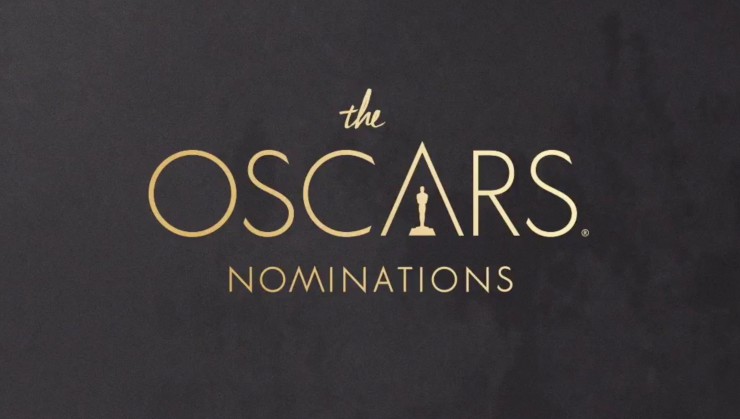
This year’s Oscars saw films like Joker and 1917 lead with eleven and ten nominations respectively, whilst JoJo Rabbit, Once Upon A Time In Hollywood and Little Women received multiple nods. Netflix Originals got a total of twenty-four nominations, most notably Martin Scorsese’s The Irishman for Best Picture, Best Director, Best Adapted Screenplay and two Best Supporting Actor awards for Al Pacino and Joe Pesci.
Whilst these films were celebrated, Hustlers, Us and Uncut Gems were completely shut out, despite high critical praise and acclaim. Lots of reasons for why these weren’t nominated comes to mind, social media being inundated with the hashtag Oscars-so-white and comments like these:
Not surprised that Hustlers was totally shut out from the Oscars tbh. It stars two woc over 30, emphasizes their friendship and mutual respect, and passes the Bechdel test.
It also treats men the way Oscar films usually treat women: as set dressing.
— Women Film Directors (@women_direct) January 13, 2020
Blinded by the white#OscarsSoWhite https://t.co/Sa5asB0doQ
— Dr. Jami Rogers (@publicradionerd) January 28, 2020
Acclaimed author and director Emma Forrest expressed what everyone was thinking:
I think as well as the flaming sexism, there’s academy prejudice against films that say what they mean to say in less than two hours #honeyboy #abeautifuldayintheneighborhood #Hustlers
— emma forrest (@GirlInterrupter) January 13, 2020
Forrest’s reminder of the “flaming sexism” in Oscars selections illuminates the quintessential problem with this year’s nominations and history’s own issues. Since the beginning of time, literature by women, for women has been “girly stuff.” There’s a reason that male works throughout history are considered more significant and prolific, because we refuse to validate and give attention to ‘feminine works.’ It isn’t simply because men’s art is better, and if you believe that, then you’re part of the problem.
Let me put this in context for you. Last decade, two major films centred solely on the lives of strippers and prostitutes: Magic Mike (which also has a sequel now) and Hustlers. The latter was a film about sexually empowered women who consciously used their bodies to profit off desperate, horny men to improve their lives. Some used the money for their education, others their family, others simply on things they wanted (and no, I’m not going to justify to you why they used their money for things they wanted).
We are still a long way from women’s sex-work being considered just work. Magic Mike, the Channing Tatum film that inspired the line “I want to Channing all over your Tatum” (make of that what you will) and focused on male strippers (we get a few shows too) received more academy acclaim than Hustlers.
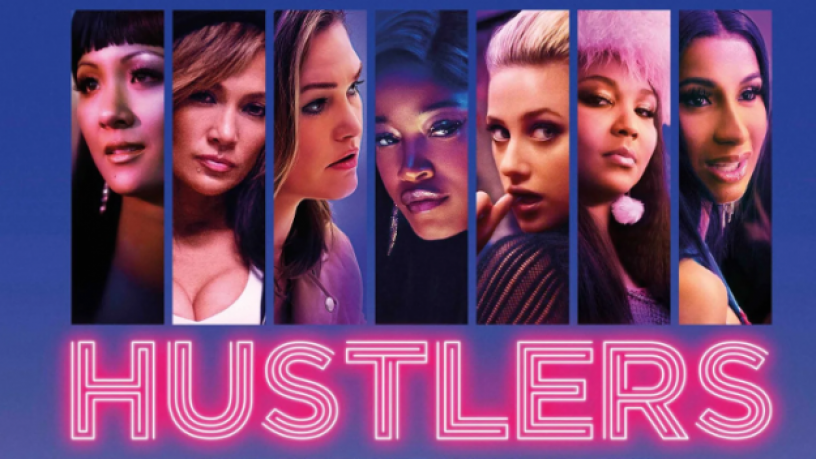
The most plausible reason that Magic Mike, the film that is just a poorer, masculine version of Hustlers was better received by the academy is because “feminine content” is still considered to lack in quality. When does it become recognised as important and as possessing the quality that makes up masculine films? Probably not until true equality is achieved. Currently, women’s stories and experiences are not valued the way men’s are, so products of femininity do not receive the recognition they deserve.
Yes, I know what you’re thinking “but Little Women had six nominations! Women’s stories are being told!” There is no denying that Little Women is a film where the five March girls are at its centre, it passes the Bechdel test (an evaluation of whether a work of fiction appropriately portrays women of substance whose lives are not only characterised by men) and is told poignantly. But there’s one thing missing from Little Women that is in stark contrast to Hustlers. In addition to the discussion of relationships, families, and sisterhood, the latter tells the story of their sexuality and their bodies. Despite being in the 21st century, there is still a major concern with women’s sexuality not being used for male pleasure, but purely for themselves, for their own lives. It’s why female masturbation is still such a taboo topic.
Little Women (like the 19th century novel, so it’s pretty normal for the era to do so) cleanly brushes over the rituals of wedding nights and leaves that part of their lives untouched (no pun intended). By keeping their nascent sexuality hidden from viewer’s minds, men can safely engage with it, without fears for their own daughters’ experiences. I’m not saying Hustlers is a better film than Little Women (I’m a literary nerd who has consumed the novel many times and proudly proclaimed herself as Jo March, so I will be damned to hear someone say something bad about this adaptation), I’m merely saying that Little Women is not polarising like Hustlers has been, and the decision not to engage with the topic of female sexuality is the reason why.
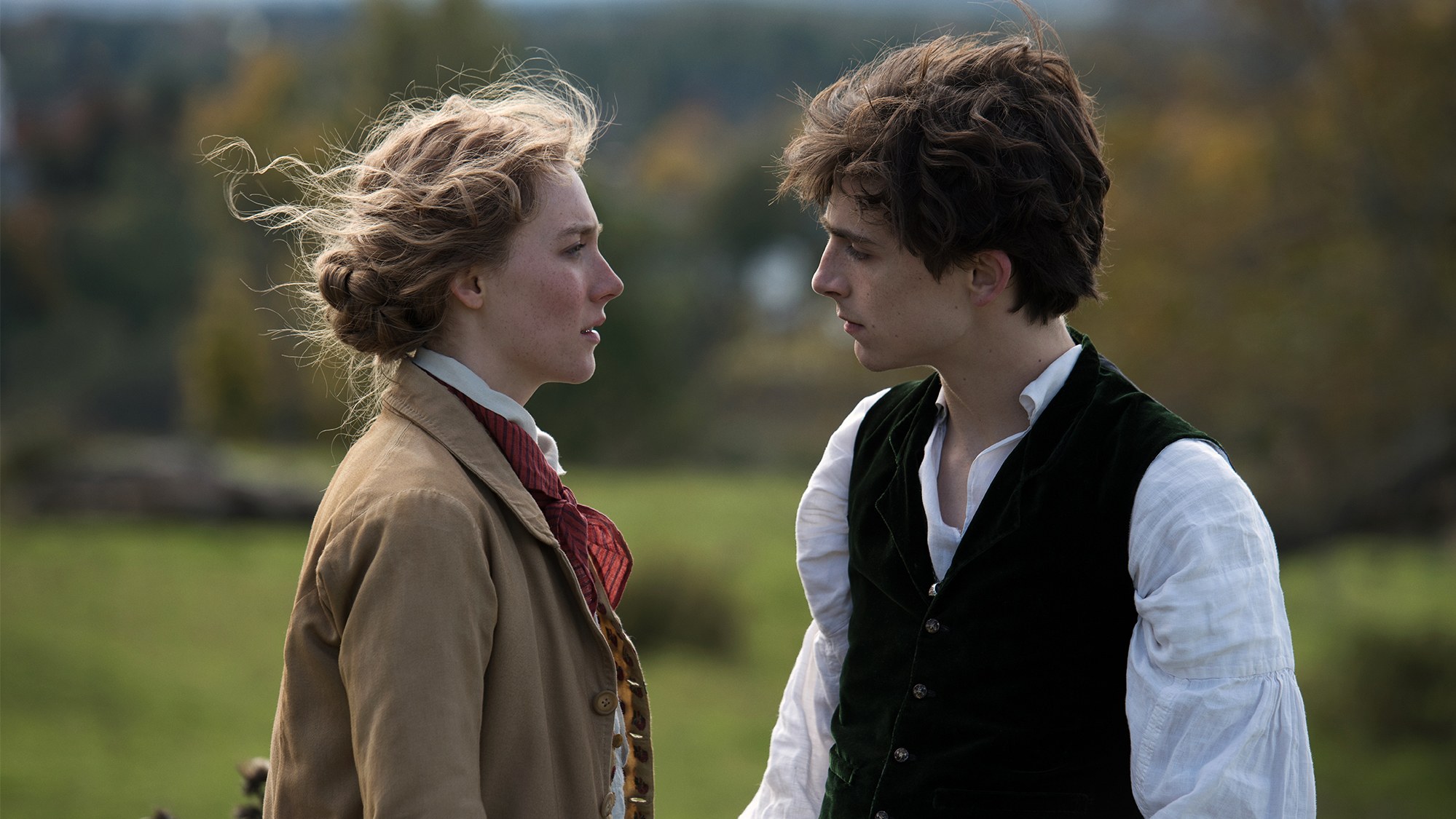
Now that my rant about Hustlers is over, I can earnestly ask “what the hell happened to the female directors?!” Despite Little Women being nominated for a whopping six Oscars, including Best Picture, Greta Gerwig was shut out of the nominations for Best Director. Instead, five men were nominated. Let me repeat that for you: four of five possible nominations were white men, and the fifth was Parasite’s male director Bong Joon Ho.
Is it because Little Women passes the Bechdel Test, that it allows its characters to explore the full spectrum of their humanity or that the women are liberated in how their choices impact their lives? Everything about that film was pure perfection. It is so rare for literary nerds like myself and my editor to ever be happy with adaptations of classic novels (ever thought of watching a film based on Wuthering Heights? Don’t. If you have, you’ll know what I’m talking about. If you have and haven’t read the book, trust us, read it).
Gerwig’s unparalleled understanding of how to portray this story has left many gobsmacked that she wasn’t even nominated for Best Director. Really, what is it with the award being such a boys’ club? Why has Gerwig been punished for telling a stunning tale that centres upon young, inspiring and charismatic women? Oh yeah, I forgot that key word: women.
I’m disappointed that I can only really list Little Women and Hustlers as adult, ‘feminine content’ from the last year’s set of films and this makes a wider comment on Hollywood as a whole. Perhaps the lack of women in Oscars nominations isn’t because women “need to step up” but because they need to be given a voice, particularly women of colour (only one person of colour was nominated in the 20 possible spots for actors and actresses!). Maybe, just maybe, the whole system is broken.
Without further ado, here are the Oscar Nominations for 2020.
Best Picture:
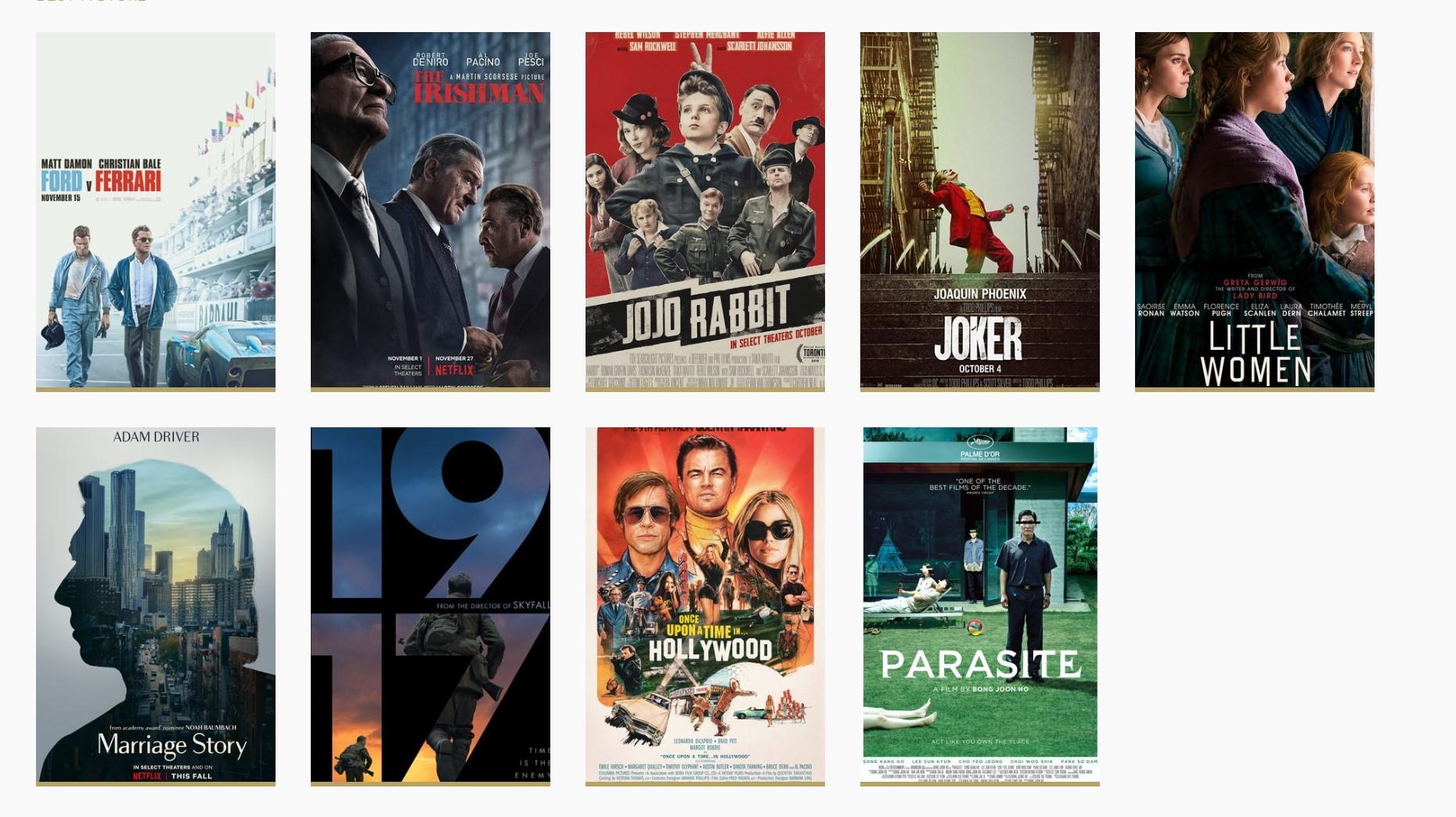
Actor in a Leading Role:

Actress in a Leading Role:
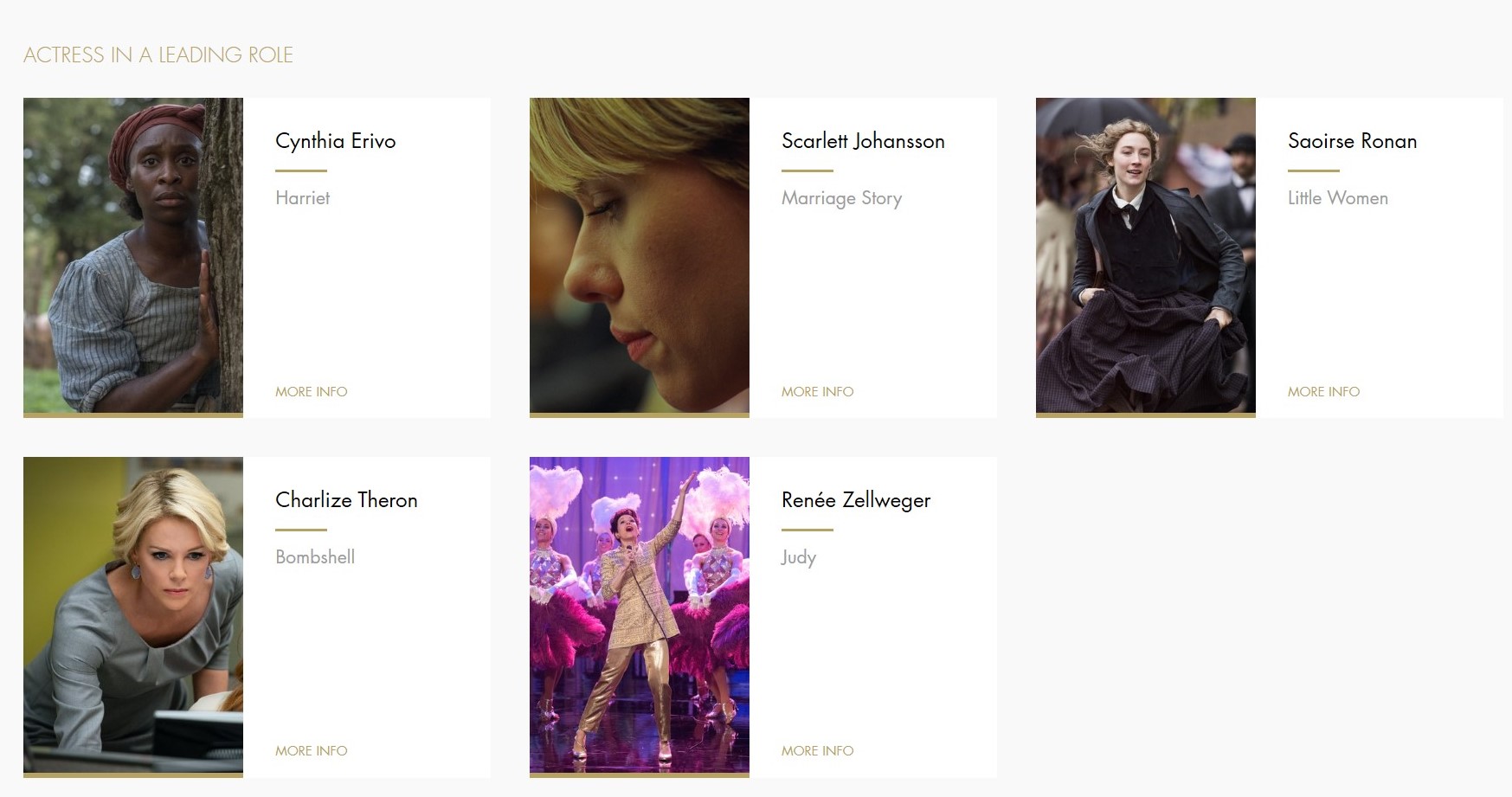
Actor in a Supporting Role:
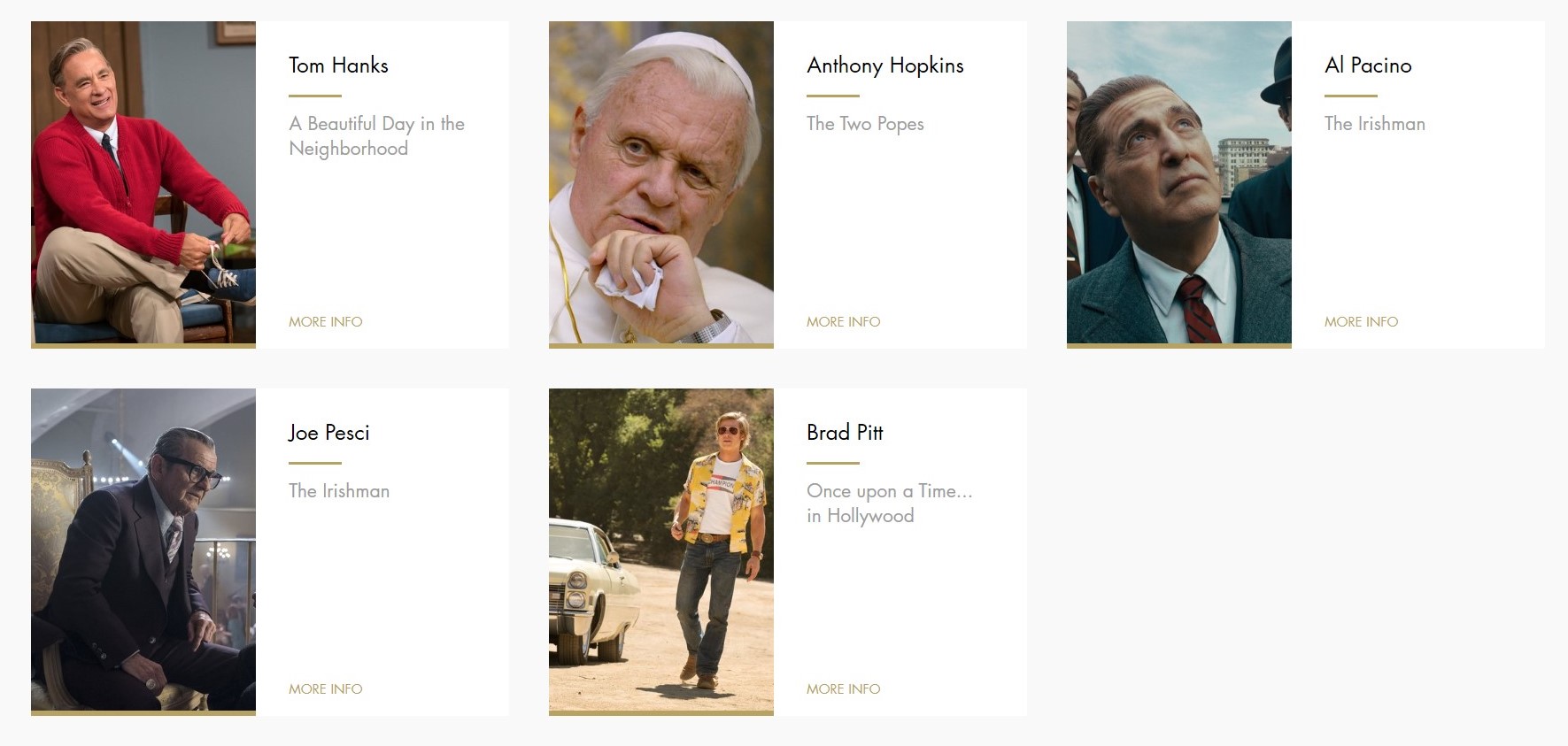
Actress in a Supporting Role:
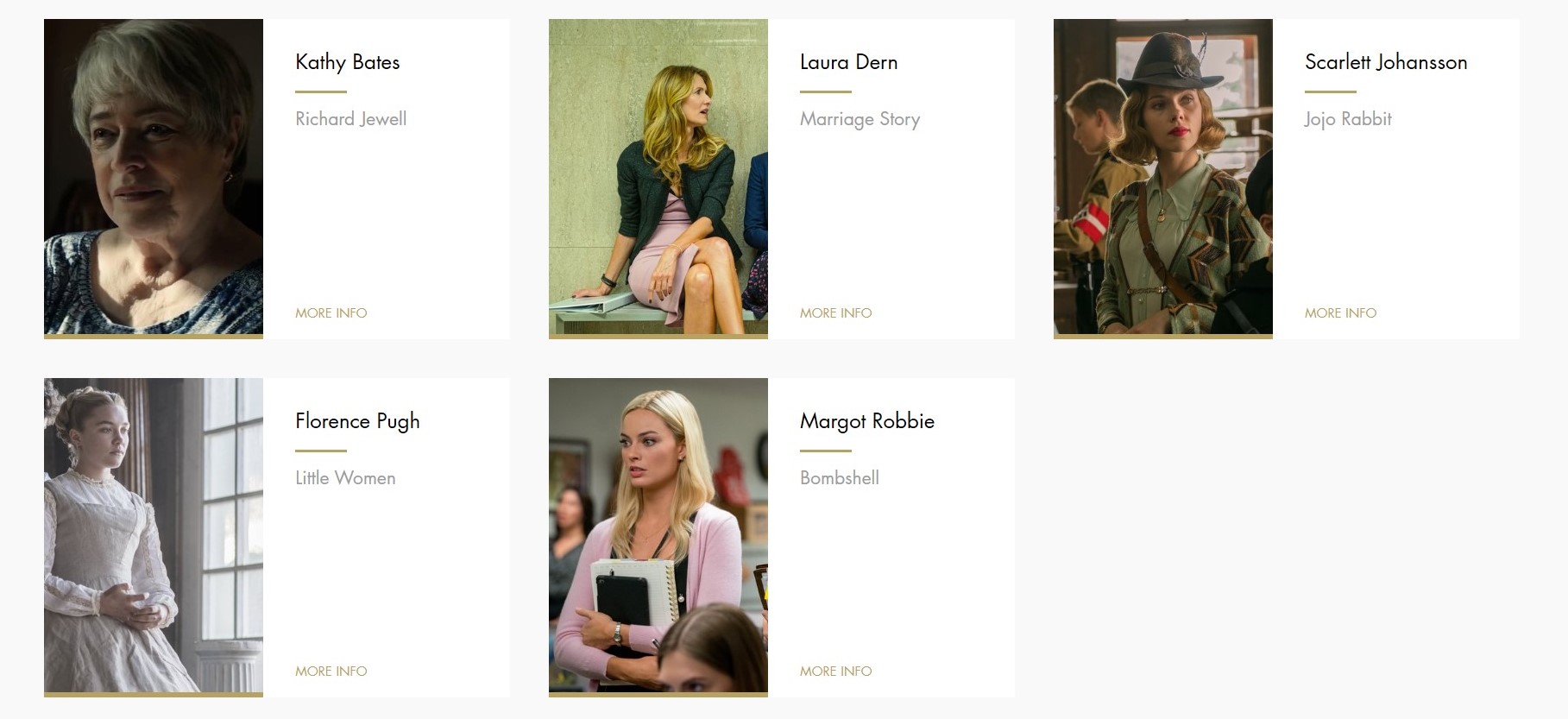
Best Director:








